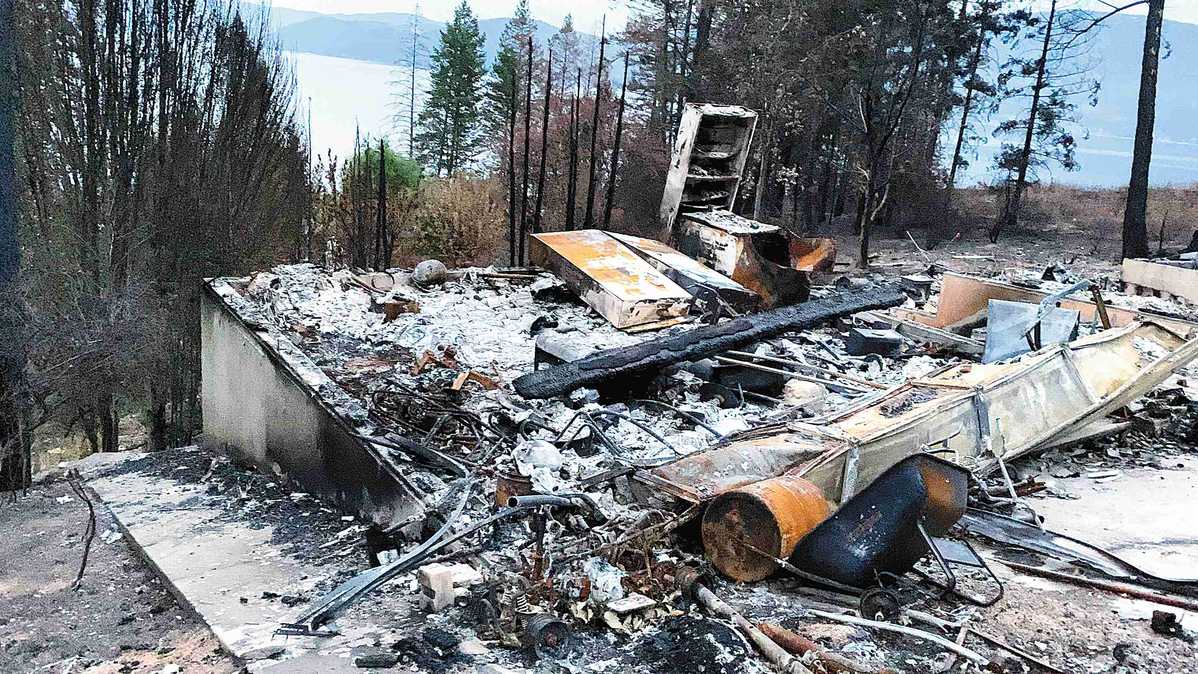Wildfires bring home global threat


"At no point since 2001 has it stopped," Enquist said. "As a result, each year habitat for Amazon species has continued to shrink."
Policy responses can make a big difference in slowing the impact of fires and deforestation, or allowing it to get worse, Enquist said.
"Although drought is an important driver of total fire-impacted forest area in the Amazon, drought effects on biodiversity loss can likely be significantly mitigated by forest policies," Enquist said.
"If forest policies aimed at protecting forests are relaxed, we can expect a continued acceleration of habitat loss and increased impact on Amazonian biodiversity."
The good news, he said, is that a shift in policy regulation can have a significant impact, and "reduce the extent of deforestation, degradation and forest fires there".
Economic consequences
It is difficult to overestimate how broad the impacts of unchecked wildfires can be. Economically, they are devastating.
"A World Bank study on the 2015 Indonesian fires estimates the damage to be at $16 billion. The effects are quite wide-ranging as the resulting haze affected even the aviation industry, not to mention the immediate damage to local communities, public health across Southeast Asia and such," said Wijaya, from WRI Indonesia.
In Western Canada, Mark said the tourism industry has been hard hit and the provincial government "declared another state of emergency, piling on to the state of emergency in place to deal with the COVID-19 pandemic". The state of emergency in response to the fires was declared on July 20 and ended on Sept 14.
Ecologically, the fires are tragic.
"Since 2001, the impact of fires on biodiversity has continued to increase and has not stopped,"Enquist said.
Socially, they are just as damaging.
Farwiza Farhan, chairperson of the NGO Forest, Nature and Environment of Aceh in Aceh, Indonesia, said the 2015 fires in Sumatra and Kalimantan left an estimated 500,000 children with respiratory issues.
"Studies have shown that the cost to local economies amounts to as much as the profits from palm oil exports," Farhan said. And that does not consider other less quantifiable factors, such as loss of flora and fauna.
Things are just as bad in Latin America, where the Amazon burns every year. Perhaps the most noticeable impact there is on nature and biodiversity.
"Up to 85 percent of species listed as threatened in the Amazon may have lost a substantial portion of their habitat owing to deforestation and fires in the past two decades," said Enquist, the University of Arizona professor.
"As fires move closer to the heart of the Amazon Basin, which has greater levels of biodiversity, the impact of fires on biodiversity is expected to increase."
Rob de Laet, project manager at the Plan for a Bioeconomy for the Amazon initiative, said, "The Amazon, in my opinion, is already in a vicious dieback cycle, which humans can only stop with huge forest protection, reforestation (of old and secondary forest) projects on more than 10 million hectares of deforested land."
What is needed, he said, is a complete halt in clearing land for agriculture and stopping construction of all-weather through roads as well as putting an end to logging.
"The new commercial activity should be reforestation and forest protection paid by the world through carbon offset as well as agroforestry and bioeconomy projects," De Laet said.
There is little reason to think that things will get better but, for just about everyone who follows the issue, any real solution will have to be both long term and rooted in policy solutions. The good news is that there are multiple policy responses in most parts of the world to deal with climate change and the fires themselves.
China is taking very significant steps. President Xi Jinping has committed the country to being carbon neutral by 2060.
Countries such as Canada and the US are increasingly focusing on reducing their impact on climate change by curbing emissions.
In Indonesia, both Wijaya and Farhan point to the need to continue implementing policies to deal with the practice of burning to clear land for palm oil estates-a popular way of clearing the land of older trees.
"Strong leadership is needed to tackle this issue. Strict law enforcement in recent years has been proven to be effective in curbing the burning. Strong leadership from the national government is also needed as many local leaders are involved with the palm oil companies," Wijaya said.
Farhan said: "There's no simple solution, but conservation activists need to be embedded in local communities. We need to provide holistic solutions, to give locals a sense of responsibility over their lands and to handle economic pressures."
The question is whether they go far enough.
Sergio Held in Cajica, Colombia, and David Ho in Hong Kong contributed to this story.
The writer is a freelance journalist for China Daily.
























